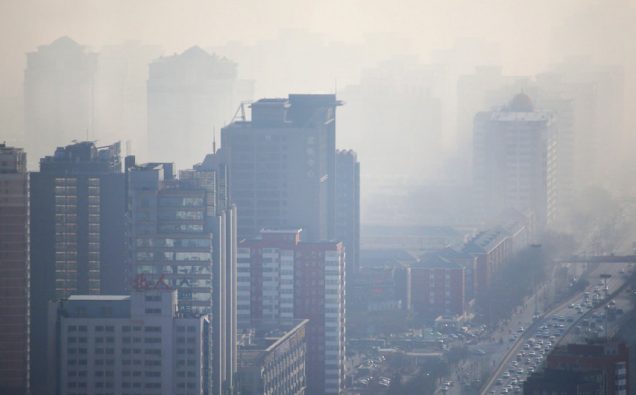
Climate change and air pollution cause more than 12.6 million deaths a year, taking an unprecedented toll on affected communities emotionally and economically.
The United Nations has called air pollution a silent killer, with an estimated seven million people dying from air-pollution related diseases.
The World Health Organization has termed it a major environmental risk to health in the face of diseases from a spate of other environmental hazards.
In a report this week, the UN cites effects of climate change like Hurricane Maria, saying the storm claimed 64 lives in Puerto Rico last September, “only for new research to reveal that it actually led to more than 4,600 deaths because of a breakdown in healthcare, electricity and infrastructure.”
The World Meteorological Organization (WMO) and the World Health Organization(WHO) in Geneva, have pledged to protect communities using “relevant and authoritative” data on the weather, climate and atmosphere.
WMO spokesperson Clare Nullis said that there was a “lot of political will” between the heads of the two organizations – WMO Secretary-General Petteri Taalas, and WHO Director-General Tedros Ghebreyesus – who shook on the deal on Wednesday after “decades of collaboration” between the agencies, the UN said in its report.

The arrangement will ensure a better flow of information between the agencies. For instance, officials expect that air pollution and UV forecasts from national weather centers will reach the health professionals on the ground “who are dealing on a daily basis, with the impact of environmental risks to health”.
The arrangement seeks to promote policies and practices which are beneficial “both to public health and which cut greenhouse gases”.
One of the initiative’s main targets is to prevent people dying prematurely from illnesses related to air pollution including strokes, heart disease respiratory conditions and cancer.
According to the statement, WMO’s role in coordinating Member States’ seasonal rainfall and temperature forecasts will also help in the fight against many diseases such as malaria and dengue fever, which depend on these variables.
Similarly, scientific drought predictions could help protect farming communities during the dry season, while extreme heat warnings are increasingly used to reduce the health impact of heatwaves, the report said.














